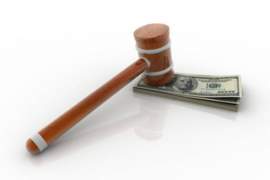
Role of Bankruptcy Judges

Related Forms
Certification of Judgment for Registration in Another District
Certificate of Retention of Debtor In Possession
Certificate of Commencement of Case
Certification of Notice to Individual Consumer Debtor(s)
Certification to Court of Appeals
Notice to Individual Consumer Debtor
Notice of Need to File Proof of Claim Due to Recovery of Assets
Notice to Creditors and Other Parties in Interest
Notice of Transfer of Claim Other Than for Security
Order Finally Approving Disclosure Statement and Confirming Plan
Order and Notice for Hearing on Disclosure Statement
Order on Reaffirmation Agreement
Order on Reaffirmation Agreement
Order for Relief in an Involuntary Case
Subpoena in a Case Under the Bankruptcy Code
Subpoena in an Adversary Proceeding
Subpoena for Rule 2004 Examination
Summons and Notice of Trial in an Adversary Proceeding
Summons and Notice of Pretrial Conference in an Adversary Proceeding
Summons in an Adversary Proceeding
View All
With almost any type of court at the local, regional, or national level, a judge will be called upon to preside over proceedings within. In bankruptcy court, the chief officer of the court is the bankruptcy judge. The appointment of bankruptcy judges in the United States is nothing to sneeze at. As designated by the U.S. Court of Appeals, a particular bankruptcy judge will be expected to serve a 14-year term at his or her post. The role of the bankruptcy judge is an important one, as bankruptcy judges will be expected to do more than just the generic part of the judge in other court cases. Indeed, these officers of bankruptcy court have several key functions to their name. The following are some notes on what a bankruptcy judge may be asked to do: At the most basic level, bankruptcy judges are required to hear all the arguments made within bankruptcy court by attorneys on behalf of petitioners and creditors. As much as the determination of a debtor's candidacy for bankruptcy relief in the first place is critical to the continuation of any case, bankruptcy judges must also decide if petitioners qualify for the specific chapter of the Bankruptcy Code. While trustees will generally be doing most of the legwork when it comes to the negotiation between debtors and creditors and the transfer of monies between these parties, bankruptcy judges will still need to sign off on motions and petitions made at various points in the application process. After all, a bankruptcy judge is the primary administrator of the rules of bankruptcy court. Consequently, he or she must grant or deny said motions and approve the claims of creditors following the meeting of creditors.
NEXT: What is the Role of Trustees





















